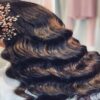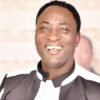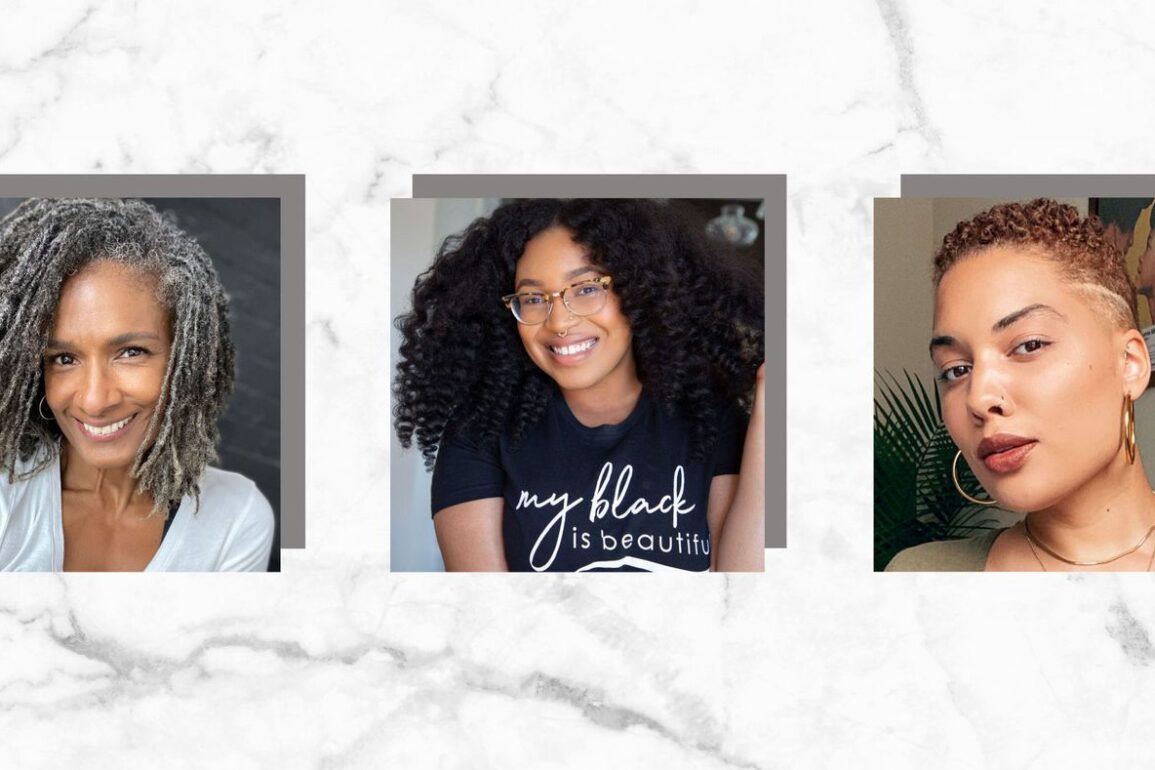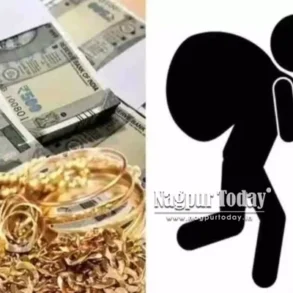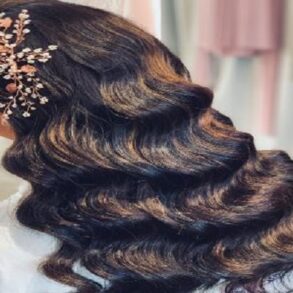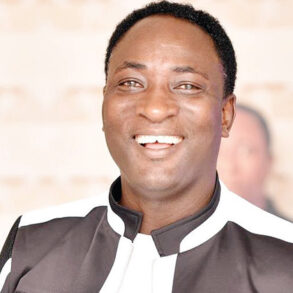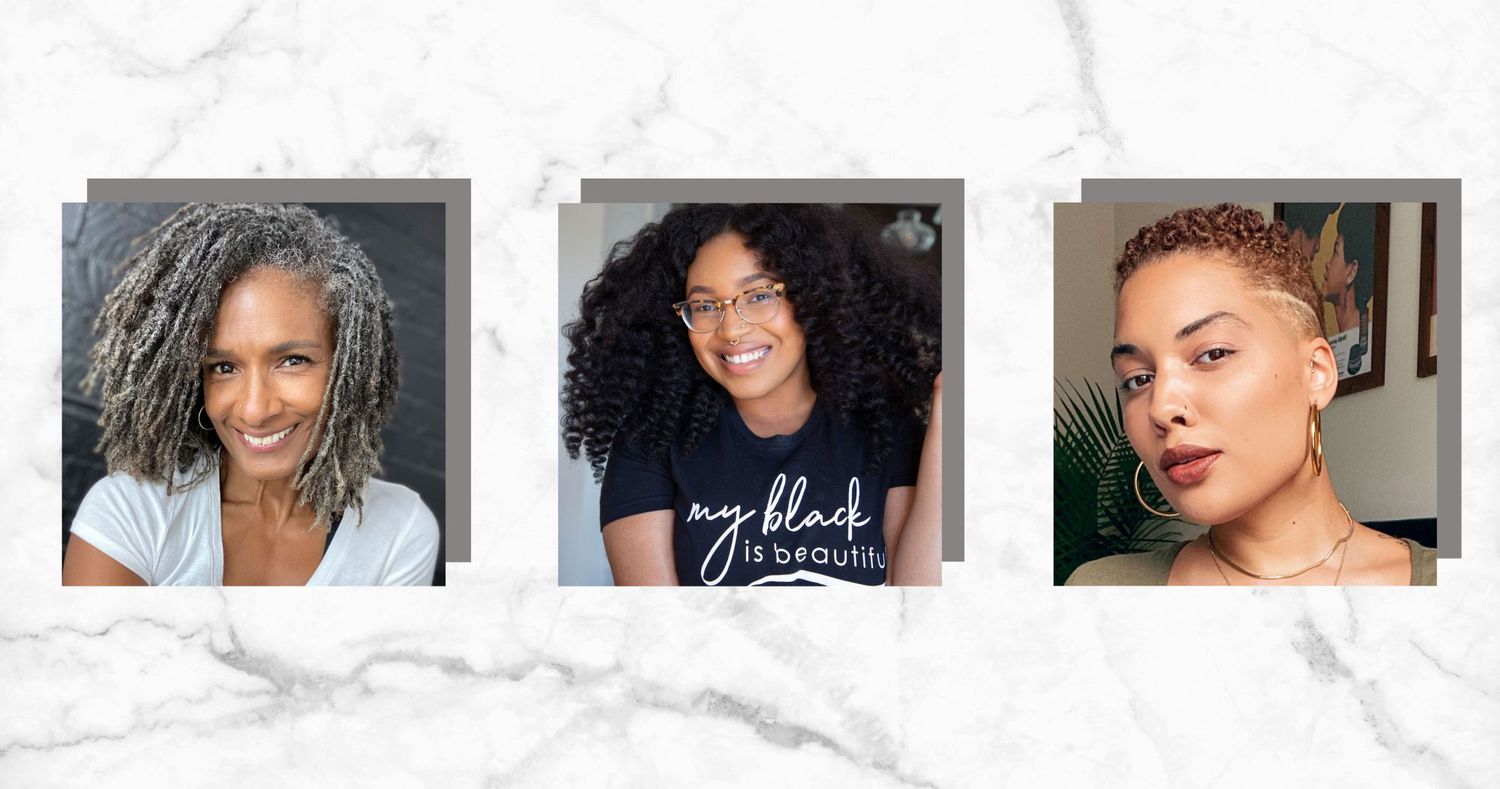
For many Black women, natural hair is a strong marker of their personal identity. From ‘fros to locs to braids, Black women frequently use hair as a means of self-expression and to connect with their cultural roots. Yet, despite its historic and social significance, wearing natural hairstyles has kept many Black women out of the corporate workforce and from advancing in their careers.
“The careers of many Black women have been deferred due to discrimination around our hair,” says Minda Harts, CEO of The Memo LLC, a career development company for women of color, and an adjunct professor of public service at NYU’s Robert F. Wagner Graduate School of Public Service. “I remember having a conversation with a white woman who is a recruiter for [corporate] board placements. She told me flat-out that she will only advance Black women with straight hair as potential nominees for board placement because she knows her clients will perceive them as more professional.”
Hair discrimination can be so detrimental, in fact, that laws have been enacted to combat this race-based discrimination in the workplace and education. One such law: The CROWN Act, which stands for “Creating a Respectful and Open World for Natural Hair.” Here’s what to know about The CROWN Act and how it aims to help end natural hair discrimination in the workplace.
What Is The CROWN Act?
The CROWN Act was first introduced to the U.S. House of Representatives in December 2019 and “prohibits discrimination based on a person’s hair texture or hairstyle if that style or texture is commonly associated with a particular race or national origin. Specifically, the bill prohibits this type of discrimination against those participating in federally assisted programs, housing programs, public accommodations, and employment.”
As of 2023, The CROWN Act has effectively been signed into law in nineteen states, including California, New York, Washington, Ohio, Nebraska, Oregon, New Mexico, Minnesota, and Virginia. In addition to The CROWN Act, the Crown Coalition (a national alliance founded by Dove, National Urban League, Color of Change, and Western Center on Law & Poverty) has declared July 3rd National CROWN Day (also known as Black Hair Independence Day), commemorating the inaugural signing of the first CROWN Act legislation in California on July 3, 2019.
Why Is The CROWN Act Necessary?
The need for a law to prevent hair discrimination may sound absurd, but it’s clearly necessary: 2020 research coming from Duke University confirms that bias against natural hairstyles limits job opportunities for Black women. In the study, participants were asked to act as recruiters and screen potential job applicants. Black women with natural hair received lower scores on professionalism and competence and were not recommended as frequently for interviews compared with three other types of candidates (Black women with straight hair, white women with straight hair, white women with curly hair), according to the study authors.
In more research commissioned by Dove, statistics show that Black women are 1.5 times more likely to be sent home from work because of their hair as opposed to their counterparts. Meanwhile, Black women’s hair is 3.4 times more likely to be perceived as ‘unprofessional’ because of their natural hairstyles.
In Western societies, the standard professional appearance has historically reflected the physical appearance of white people — so much so that 80 percent of Black women agree with the statement that “I have to change my hair from its natural state to fit in at the office,” according to Dove’s CROWN Research Study. Furthermore, straight hair — and any hairstyle, for that matter — should be a personal choice, not a criterion for getting a job.
— Minda Harts, CEO of The Memo LLC.
“If Black lives matter externally to companies, then those Black lives that work inside of their companies have to matter as well, and that means creating psychological safety so all employees can bring the pieces of themselves that they choose to bring to work,”
— — Minda Harts, CEO of The Memo LLC.
During a time in which many corporations have vowed to address systemic racism in the workplace — in the aftermath of George Floyd’s murder and the subsequent protests — it’s important to address individual biases as well, some of which may not even be conscious (i.e. implicit bias). “What happens when a Black person comes in and they have natural hair?” asks Gillian Scott-Ward, Ph.D., a clinical psychologist and director of Back to Natural documentary. She argues that hiring managers need to use grounding skills so they can focus on a person’s resume and not their appearance.
And the work can’t stop after Black women are hired. “If Black lives matter externally to companies, then those Black lives that work inside of their companies have to matter as well, and that means creating psychological safety so all employees can bring the pieces of themselves that they choose to bring to work,” says Harts.
Meet 11 Black Women Who’ve Experienced Hair Discrimination
To highlight what these challenges look like IRL and celebrate the beauty, and rich culture, of Black hair, we asked 11 Black women to share what it’s like to navigate their careers with natural hair.
Nyria S.T., West Philadelphia, PA
“In 10th grade, my high school exposed us to year-long internships around the city. We completed applications and interviews; I thought I truly aced all of them, but when it was time to review my feedback, the majority of it was about my professional attire. I was so confused because I had worn typical corporate attire: blazer, blouse, long black pants, comfortable working flats, minimal jewelry. What was wrong? And then it hit me: Was it my hair? Keeping up with the hair trends of the time (I was in high school after all), I dyed my hair multiple colors. For the interviews, however, I opted for dark purple — a shade that easily blended with my natural color and passed as black — and wore my hair in Marley twists. I saw nothing wrong with it; Black women wear twists and braids all the time, and I’ve seen medical professionals wear different styles of braids when I went to doctor’s appointments, so I didn’t understand why I received that reaction. Because I was such a people-pleaser in high school, I caved and decided to take my twists out and wore a weave to my next interview; low and behold, I got the internship at a local children’s hospital.
I have a big chop now [cutting off all of one’s relaxed hair so new, natural hair can grow.] Big chops are a huge thing and can make women feel less feminine because of societal beauty standards. So, I’m a bit worried about my hair now being perceived as too short during the interview process.”
Jodi S., Crown Heights, Brooklyn
“Seven months post-graduation from the Fashion Institute of Technology, I was actively applying to jobs when I finally got a call from the showroom of a famous evening wear designer for an entry-level position. At the time, I was a florist in Harlem, living with two musician roommates and sporting a curly fro. I had recently gone natural, thanks to some amazing YouTubers and a very supportive best friend who shaved my head in his dorm room. This interview was my big break and I couldn’t have been more excited.
During my interview, things were going well, and I was feeling good. The interviewer and I even connected on the designer’s gown being worn by a famed and talented Black actress in an unprecedented historical award win the previous night. I was prepared, qualified, and the interviewer and I had built an amazing rapport. Mid-way through the laughter and me feeling super confident the interviewer paused abruptly and said, ‘Jodi only thing is for the final interview I think you should push your hair back. I mean I get it and I love your look but it’s a bit much.’
I never got the invite to the final interview or any formal feedback but I always wonder who I would have been able to become if I was given the opportunity.”
Kianna S., Bronx, NY
“Working in Manhattan — SoHo specifically — it’s interesting how people react to my hair. The interactions I’ve had with other people have mostly been positive; the support you get for rocking your natural hair makes it worth it and feels good. I either get compliments or questions about my hair, though some questions can be a bit ignorant or off-putting such as, ‘How often do you wash it?’ ‘How do you get it like that?’ ‘Is that real?’ When I’m working face-to-face with customers, what some of them fail to realize is that I can see their eyes wandering to my hair, exploring it all, just taking it in right in front of me. Some of them comment on it, and others just act like the staredown between them and my hair didn’t happen. It gets kind of weird, but I’m used to it at this point.
Initially, for interviews, it was hard because just thinking about how one should style their hair holds much more weight for Black women with hair that isn’t fully seen as acceptable to some. Another issue that I don’t think is talked about much is what type of natural, curly hair you have to have to be seen as professional –– coarser hair is often seen as wild. I once had a person ask me, ‘Why don’t you put gel in your hair so that the curls can pop more?’ When you wear your hair naturally, I feel like people think that’s an invitation to tell you how you should do your hair, but when I have my hair straight or I wear my wig, I hear nothing. The way society is and how we were not brought up to accept natural hair, I tend to have thoughts such as, ‘Should I wear my hair slicked down? Should I wear a wig?’ whenever I do have anything professional coming up. Even though those thoughts run in my mind, I still wear my natural hair — at times I do get nervous and other times I don’t. I’ve grown to love it, and it took me a long time to do that. If my hair isn’t accepted, I wouldn’t want to be in that environment anyway.”
Carla K., Los Angeles, CA
“I’m very confident in my look — gray hair worn in sisterlocks — and who I am — someone who began modeling in her early 50s. So, when my agent told me about an audition for a commercial, I wore my hair as it is because if you know anything about locs, then you know they’re not something that you change: You can’t undo them, you can’t blow dry them, you can’t straighten them. The look is the look, and when you no longer want that style, you have to cut off your locs entirely. So, I went to the audition and got the job — only for my agent to call me again later that day, saying, ‘The client is wondering if you can change your hair.’ My response? ‘Um, no.’ I mean they saw me — I went to the audition. They knew exactly what my hair looked like, so why do they want me to change it and what do they want me to change it to? ‘Yeah, they kind of want it straight,’ said my agent. And in my mind, I thought, ‘Well if you wanted straight hair then you should’ve been looking at people with straight hair. My hair isn’t straight.’
Of course, I didn’t say that, but I was kind of annoyed. So, I explained the situation to my agent, who is non-Black, to which I think she said, ‘Do you know someone that has a wig or something?’ I told her I’d get back to her and hung up. I knew someone who had a wig made of straight, long hair — just what the clients wanted — so I asked if I could borrow it, even though I kept thinking, ‘I don’t want to do this. I don’t want to do this.’ And I really should’ve stuck to my gut, but I didn’t. I got the wig; I put the wig on; I took pictures, and sent it to my agent. She sent it to the client, and they loved it.Fast forward to the shoot and there I was, stuck outside on one of the windiest days of the season, wearing a wig that was blowing everywhere. What’s more, I was the only Black person on set, so I knew that my hair — rather this wind-blown, unnatural-looking wig — was clearly the topic of conversation. Soon, I was told to ditch the wig and go with my own hair but the hairstylist knew nothing about Black hair. It was all just so uncomfortable — so much so that after shooting, I cried in my car, vowing to myself that I would never let someone tell me to do something different to my hair that I know is just not something my hair would do. From now on, I’ll tell people clearly that this is my look, so if this is not the look that they’re looking for then maybe I am not the girl for the job.”
Kimberly G., Bronx, NY
“I’ve always felt weird when wearing my natural hair in white spaces. Whether it was at an interview or at work, I felt as if all eyes were on me. One summer while working in an office, I was the only Black woman there. I always felt uncomfortable because I felt like I didn’t belong or fit in. At times when I would be sitting, minding my own business, my coworkers would ask me questions about my hair. They would say things like, ‘I like your hair, how long is it when you straighten it?’ and ‘How come it’s so short?’ I couldn’t react the way I wanted to because then I’d be labeled as angry, so I just left to do other things.”
Charnice C.,New York, NY
“I used to wear long weaves and would often get compliments on the sleek and seamless look of my hair. These compliments usually sounded like, ‘Your hair is so beautiful!’ ‘You did your hair so nicely.’
I returned to my natural hair out of convenience. I danced six days a week and couldn’t keep up with perming my hair, and would always sweat out my leave-out [the natural hair left out of the weave to make it look more seamless]. Once my perm was out, I felt a sense of relief. I could just twist or braid my hair up without worrying about ‘messing’ it up. But, the moment I stepped out of my dorm with my natural hair, the nature of the compliments shifted: ‘Your hair is so cool!’ ‘Okay, Angela Davis!’ The comments all of a sudden felt either fetishized or like it was some sort of statement. Even my family would often ask me, ‘What are you going to do with your hair?’ when it was already done. I somehow was able to brush off those comments as I was inspired by more and more Black women embracing their natural looks.
My journey to locs started around the time I was interviewing for medical schools, and though I was nervous about the stigma of dreadlocks in the professional setting, I also felt empowered to face administrators that discriminate against Afro hair. I have leveraged my social media platforms to teach people with locs how to maintain and style their hair. My goal is to help people embrace their natural hair and spread the message that yes, Afro hair is professional, but most importantly it is beautiful, it is cool, and it pays homage to our ancestors.”
Yelitsa J., Detroit, MI
“When I think about my relationship with my hair, I think back to my childhood home and comments from family and friends about what constitutes ‘good hair’. It was a mixed bag of my mother fighting to tame my kinks and curls into neatly designed patterns of hearts and stars with beads only for one of my cousins to release them into a Scary Spice ‘fro.
Middle school was the battle for a perm which was forever denied. High school was the daily morning bang straightening in order to conform to the style of my peers. College was the first time I discovered wearing my natural curls was even an option. I ditched the flat iron and opted for coconut oil and shea butter. It was challenging because of the underlying tone that straight, long flowing hair was more attractive. I didn’t care. I wore box braids, Bantu knots, and twist-outs.
Post-college, I worked for two Black-owned companies and never felt that my hair was unprofessional. However, in between those two jobs, while interviewing, I felt that my appearance caused some discomfort. I once went to an interview with red Havana twists that went down my back. No less than four times throughout the 30-minute interview for a design role, the white female owner pointedly stated and asked if I was comfortable with them running a background check. Just a year out of college and with a clean record, it felt odd. And once I talked to my peers, I realized it was just that: odd. Can I say this was because of my hair or being Black? No. Can I say it made me incredibly uncomfortable? Yes. But it doesn’t matter since I am now my own boss; I can wear my hair how I want and, as the founder of Healthy Roots Dolls, am creating products to encourage other Black girls to do the same.”
Yanique R., Alexandria, VA
“It’s said that ‘you never forget your first,’ and I’ve come to recognize the many applications of that phrase. My Trinidadian friend, who worked at one of New Jersey’s leading communications and marketing agencies, encouraged me to apply for their summer internship program. At the time, I was 18 and fresh out of my first year of college. After a successful interview, I was accepted into the program. The agency maintained a prestigious roster of clients, and I thought the experience would have been an excellent resume builder.
For nearly a decade, my signature look was Brandy braids, tiered plaits that I’d rotate out every two to three months. A few weeks into my internship, my friend pulled me aside and said a white senior account executive did not find my long and bountiful braids ‘appropriate for the corporate workspace’ and that they did not look ‘professional.’ My friend, at the white senior account executive’s behest, asked if I would change my hairstyle for something ‘more befitting of a professional atmosphere.’ I was completely taken aback by the request as in the many years that I had worn my beloved hairstyle, I hadn’t received a single complaint. Although the internship was my first foray in the corporate space, every facet of my presentation was impeccable. I arrived at the office on time, wore creaseless suits, and produced content that received rave reviews from our clients. Yet despite the aforementioned accolades, I was asked by the only other Black woman at the agency to change my hair for something ‘more befitting of a professional atmosphere.’
Perhaps it was the tenacity of age because I declined to do any such thing. I told my friend that when I interviewed for the position, albeit with another account executive, I donned the very same glorious crown without rebuke. I had no intention of changing my hair and suggested that the white senior account executive discuss her concerns directly with me. While I don’t believe my friend returned the intricacies of my message to that white senior account executive, what she said seemed to suffice as the subject of my hair wasn’t addressed for the remainder of my internship.”
Sasha M., Queens, NY
“Despite wanting to wear my ‘fro, I’ve always slicked my hair back or worn a wig for interviews. I even tweeted about my personal dilemma once, and got a similar response from other Black women; women saying they slick their hair down into low buns or puffs or wear protective styles such as braids for interviews. I feel like if I wore my hair naturally it would give interviewers a reason to be discriminatory, especially for fashion roles.
If I were to offer any advice to young Black professionals, I would say that the best thing to be is yourself, especially during an interview. If you want to rock a ‘fro, dreadlocks or braids, by all means, do it. To be discriminated against because of your hair is a downfall of the company, not you. You are worthy and more than great; don’t let hair set you back.”
Amanda W., Houston, TX
“As a Black woman, I am extremely aware of how I present myself in predominantly white spaces. We’re groomed from a young age to police ourselves, so I’m constantly thinking about not being too loud, not having hair that’s too big, and dressing ‘appropriately’ in professional settings. For these reasons, whenever faced with an interview, I felt I needed to present the most socially-acceptable version of myself, which is synonymous with fitting into European standards of beauty. The anxiety that I have, which stems from the fear of being deemed unfit for a job simply because of my appearance, is much too high. My livelihood, quite literally, depends on being accepted in the workplace, and feeling like I have to contort myself to fit into those spaces is mentally taxing.
In the past two to three years, however, I’ve grown to realize that if I can’t be accepted and welcomed as my authentic self, then I don’t care to be in that particular environment. I made a conscious decision to wear my hair any way I’d like, to speak in my full AAVE [African American Vernacular English] glory no matter what, and to speak out against the microaggressions that inevitably come with being a Black woman in predominantly white spaces. In the end, feeling like I have to constantly police myself is extremely detrimental to my well-being and even though it might not be acceptable to some, it’s acceptable to me. I’ve also come to understand that no matter what, I end up exactly where I’m supposed to be regardless.”
Anonymous, Seattle, WA
“I have had natural hair my entire life, but I haven’t necessarily worn it out in natural hairstyles all the time. I have coily 4c hair and I didn’t really learn to properly do it until my early adulthood.
When I started my first corporate office job, I didn’t wear my hair out for the first year or so. When I was finally comfortable, I tried wearing my hair in twists. I figured it would be okay because at this workplace we were unionized and legally we couldn’t be told how to dress or present ourselves. No one told me not to wear my hair out, but I did get unwelcome comments when I did. A co-worker pointed to my head, laughed, and said, ‘nice hair.’ I just said, ‘thank you’ and nothing else, but I would be lying if I said it didn’t hurt. Another time, one of the few other Black people working with me told me, ‘Wow you’ve been here so long you just don’t care how you look, doing your hair any which way.’ That was basically the nail in the coffin for me.
I’ve recently started a new job. I purposefully looked for a company that had a ‘casual’ dress code. Because Black hair is often considered unprofessional, I figured this was the best chance I’d get to wear my hair out at work without hearing malicious comments about it. This company I work at likes to say they’re supportive of ‘self-expression’ and everything, but that doesn’t mean they’ll honor it. It’s one thing to receive comments about my hair, but I can’t afford to be fired over it. I’m not sure what I’ll do in the future, but for the last few weeks, I’ve only pulled my hair back in tight buns. I’m the only Black person in my office and I’m not comfortable yet to fully express myself how I wish.”
This post was originally published on this site be sure to check out more of their content.


